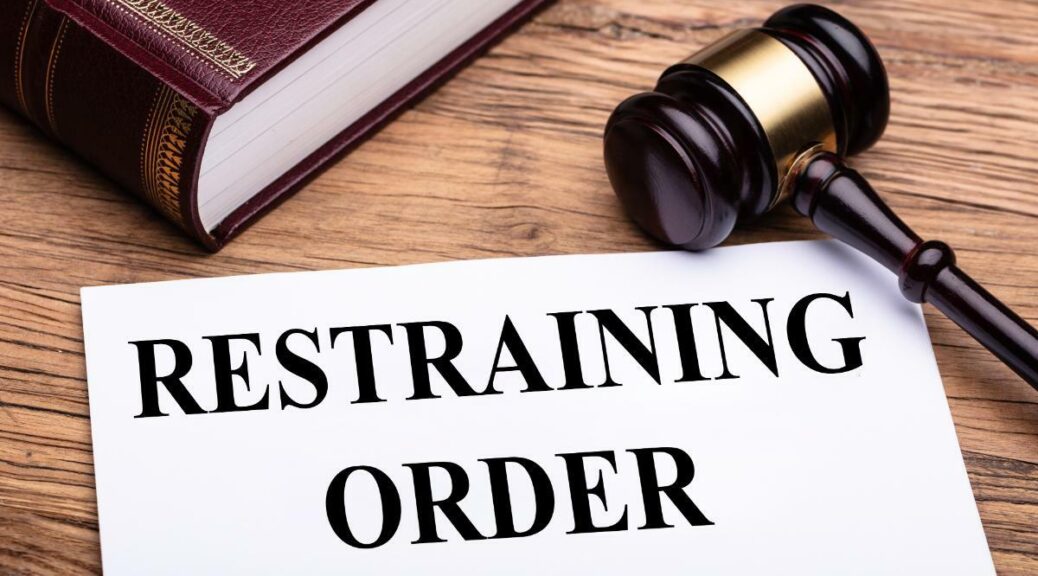California is known for strict gun laws to protect its citizens from crime and domestic violence. The state legislature first approved Gun Restraining Orders in 2016. How do CA Gun Violence Restraining Orders work, and when do you need one? CA Certified Family Law Specialist Judy L. Burger discusses CA Gun Restraining Orders and how they work.
What Is a Gun Violence Restraining Order?
A Gun Violence Restraining Order (GVRO) is a court order that prevents someone from accessing firearms and ammunition. It’s also known as a “red flag law.”
“The GVRO provides an opportunity to remove guns from individuals who would not otherwise be prohibited from possessing firearms.” This legally binding order reduces the risk of gun-related violence for between one to five years, allowing the person in crisis to get help.
The judge may issue a temporary Gun Violence Restraining Order before the scheduled hearing and grant other restraining orders as necessary. A temporary GVRO lasts for 21 days. If the judge grants a 1-5-year GVRO, a law enforcement officer will serve the papers to the person and collect any firearms, ammunition, and magazines. The subject of a GVRO cannot legally purchase any guns, magazines, or ammunition while the order is in force. The court may extend a GVRO.
A GVRO requires the subject of the order to relinquish all firearms and ammunition and prohibits the subject from purchasing any guns or ammunition while the order is in effect.
When Would I Need a GVRO?
When should you consider petitioning the court for a gun violence restraining order? Under California Penal Code Section 18150, a Gun Violence Restraining Order can prohibit an individual who poses a significant danger of self-injury or injuring another from owning, possessing, purchasing, receiving, or attempting to purchase or receive a firearm or ammunition.
Threats or acts of domestic violence are common reasons to ask for a GVRO. The United States Department of Justice defines domestic violence as: “Domestic violence is a pattern of abusive behavior in any relationship that is used by one partner to gain or maintain power and control over another intimate partner. Domestic violence can be physical, sexual, emotional, economic, psychological, or technological actions or threats of actions or other patterns of coercive behavior that influence another person within an intimate partner relationship. This includes any behaviors that intimidate, manipulate, humiliate, isolate, frighten, terrorize, coerce, threaten, blame, hurt, injure, or wound someone.”
The California Family Code defines domestic violence as abuse perpetrated against an “intimate partner” or family member. This can include spouses, former spouses, cohabitants, individuals in dating relationships, parents, and children. While physical violence often comes to mind first, domestic violence also encompasses emotional and psychological abuse, including threats of harm.
In the context of domestic violence, a threat can be considered abusive if it instills fear, apprehension, or intimidation in the victim. Even if the threatened harm does not materialize, the impact on the victim’s emotional well-being is considered.
How Do I Obtain a GVRO in California?
The following people can request a Gun Violence Restraining Order against an individual:
- An immediate family member
- An employer
- A coworker, if they have had substantial and regular interactions with the subject for at least one year and have obtained the employer’s approval
- An employee or teacher of a secondary or postsecondary school that the subject has attended in the last six months, if the employee or teacher has obtained the approval of a school administrator or a school administration staff member with a supervisorial role
- A law enforcement officer
- A roommate
- An individual who has a dating relationship with the subject
- An individual who has a child in common with the subject, if they have had substantial and regular interactions with the subject for at least one year
You can ask a law enforcement officer to ask for a gun violence restraining order. If it is an emergency, you can call police and ask for one right away. If you do not want to call police for help, Family Law Attorney Judy Burger can help you petition the court and handle the details.
Get Help with Gun Restraining Orders in California
You do not have to remain in threatening, abusive, or dangerous relationships. CA Certified Family Law Specialist Judy Burger can help you when you need legal protection or seek to protect someone close to you from committing harm or harming themselves. We have eight offices across California to serve you. Schedule a consultation to get answers to your questions about Gun Violence Restraining Orders and other types of restraining orders. We can offer counsel, help you file petitions with the court, and get the help you need now.


